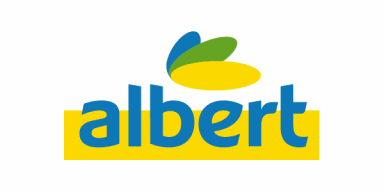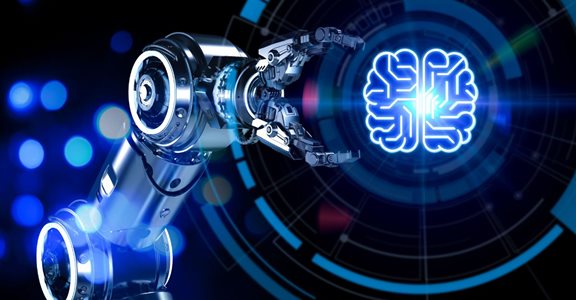Practical AI Application
Enter the world of innovation with AI-driven solutions. Maximize business potential, simplify tasks, and gain valuable insights from your data.

Comprehensive solutions in artificial intelligence
We are involved in data collection for post-processing using advanced statistical analysis algorithms, enabling deeper understanding and interpretation of the data.
We focus on processing both structured and unstructured data, tailored to the specific processes and needs of the customer. This includes the creation and implementation of interpretation layers, including visual analytics, to make it easier for users to understand and interpret complex datasets.
We are dedicated to the development and application of machine learning to large-scale language models, specializing in the analysis, generation and understanding of natural language, extending our capabilities for advanced processing and interpretation of language data.
Benefits
- Our references in AI projects speak for themselves
- Use AI to speed up your business processes
- AI increases operational efficiency
- AI gives you a better understanding of your customers
- Innovation through AI opens up new possibilities
- Our expert AI team provides tailored solutions for your business needs
Key AI techniques in our solutions
- Machine Learning (ML) focuses on developing algorithms that enables computers to learn from data and improve their performance. It identifies patterns in data, enables prediction of future phenomena, and improves accuracy as the amount of data increases.
- Deep Learning (DL) uses deep neural networks to model complex patterns in data. It finds applications in image recognition, natural language, audio processing and other related areas.
- Natural Language Processing (NLP) focuses on the interaction between computers and human language. Applications include automatic translation, sentiment analysis, and chatbots.
- Large Language Models (LLM) in NLP is the creation and use of large-scale neural network models for natural language analysis and generation. They efficiently answer questions, summarize text, and generate creative content.
- Computer Vision (CV) seeks to teach computers to "see" and understand visual data. It is used in security monitoring, medical diagnostics, and other fields.
- Cognitive Computing (CC) refers to computing systems designed to mimic human abilities to perceive, learn and make decisions. They are used in personal assistants, decision support systems and analytical tools.
- Neural Networks (NNs) are algorithms inspired by the structure of the human brain for building and training models. They are widely used in image recognition, time series prediction and natural language.
Where we can help you with AI deployment
- Engineering production - optimizing production processes, enabling predictive maintenance and monitoring and improving the safety of production lines. Automation and robotics support increasing production capacity and reducing human error.
- Automotive - improving automation of complex manufacturing processes, increasing process efficiency. Ability to predict machine maintenance needs, reducing idle time and increasing reliability.
- Cosmetics and pharmaceuticals - optimising manufacturing processes, accelerating research and development of new drugs and cosmetic formulations. Product personalization made possible through data analysis, predictive analytics to help predict product success in the marketplace.
- Utility sector - using data from sensors and other special devices for various optimizations in the energy, gas and water sectors, reducing outages, supporting predictive maintenance, demand management and monitoring distribution losses.
- Tourism - personalization of services and offers, chatbots for instant customer support and dynamic pricing strategies, predictive analytics to help anticipate tourism trends and optimize offers.
- Retail and grocery - increasing efficiency through personalisation of offers, efficient inventory management, contactless payments. Process optimization based on location data. For petrol stations, for example, it can bring predictive maintenance, price optimization, security surveillance, personalized customer experience, etc.
- Food industry - quality control, removal of defective products from the production line, optimization of supply chains, analysis of consumer behaviour data to enable customization of products to customer preferences.
- Finance - complex predictive analytics, offer personalization, risk management support, insurance claims automation, speeding up administrative processes, fraud detection, etc.
- Public administration - increasing efficiency and transparency, automation of routine tasks, digital assistants and social listening to increase the efficiency of communication with citizens, analytical support in crisis management for emergency response, etc.
- Petrochemical industry - logistics optimization, predictive maintenance, dynamic pricing, safety surveillance.
- Services and legal - automation of routine tasks, support for legal research, accurate search of legal texts, increasing transaction security, intelligent document archiving, etc.
- Healthcare - improving advanced diagnostics and treatment, reducing administrative burden, personalised medicine through data analytics, etc.
- Academic sector - improving research by automating data analysis and predictive modelling, in education enabling personalised learning and automated assessment, reducing administrative burden, expanding access to research.
- Construction and engineering - improving efficiency, reducing costs, promoting sustainable development, optimising planning, predictive maintenance, automating construction processes, improving safety.
- Local government - optimising city services, promoting communication with citizens, streamlining administration, predictive analytics to facilitate public service planning, personalisation of services to improve citizen satisfaction.
Examples of using AI in our projects
Founded in 1927 in Germany, this company is a renowned manufacturer of private label beauty products, known for its innovative approaches and emphasis on sustainability. The company focuses on efficient solutions to production challenges such as high production capacities of cosmetic pencils (10,000 pieces per day in 10 variants) and full use of IT tools. As part of this process, the company took the opportunity to improve and use data more efficiently through the implementation of artificial intelligence. Artificial intelligence techniques were applied to optimize the production processes, which involved integrating and analysing data from various stages of production, including linking it to existing IT systems. Furthermore, ML analysis was used to compare planned and actual production and predict potential deviations. These procedures not only increased the efficiency of production processes, but also contributed to cost reduction and supported continuous improvement of operations. The implementation of AI has enabled more efficient use of information at all levels of the company - from production management to operators on the production lines. This has improved visibility into production processes, streamlined planning, and increased accuracy in solving production problems. These advances have not only improved throughput and reduced the impact of unforeseen events on production, but have also fostered a proactive approach by employees, improved forecasting and planning, and retained critical knowledge within the company. More detail on the project can be found in the case study below.
VARS (Deep Learning)
For a well-established Czech construction company with more than 25 years of experience, we developed a solution using artificial intelligence (AI) to optimize road assessment and maintenance. VARS, specializing in diverse construction and engineering projects, faced challenges associated with manually processing data from measurement vehicles, which was time-consuming, inaccurate and difficult to sustain when processing large data sets. Our AI solution uses Convolutional Neural Networks (CNN) to automatically assess road conditions from image data. The process includes image preparation, labelling for AI training, annotation quality control, and development of a unique custom CNN architecture with 22 layers. This system achieves up to 86% success rate in recognizing different levels of road damage. The user interface transforms data from the CleveRA Car measurement vehicle into easily interpretable information. This includes data collection, visualisation, road condition recognition and classification, exporting data to JSON and providing input for repair and maintenance decisions. The system offers a comprehensive view of road maintenance and safety assurance, helping to improve safety and optimise the cost of road infrastructure management.
AUTOMOBILE MANUFACTURER (Deep Learning)
For a client in the automotive industry, we solved key challenges in their manufacturing. Initial challenges include the need to increase conveyor reliability for the production of thousands of cars per day, minimizing financial losses from downtime, ensuring safety through manual inspections, rapid problem detection and resolution, predictive maintenance, and adapting to the increased weight of new car models. In automotive manufacturing, artificial intelligence (AI) technology is bringing significant advances in defect detection. These techniques increase efficiency, reduce downtime and improve production quality. The use of OpenCV, tensor work, 2D filtering and other methods enable more accurate and faster problem identification and resolution. We utilized U-net architecture, YOLO v.5, FCNN, and other technologies for detailed analysis and problem localization, which contributes significantly to optimizing the production process. The system offers a user interface for efficient monitoring and maintenance of conveyors. It includes camera-based condition sensing, central image evaluation on the Nvidia Triton Inference Server, and visualization and status notification. The benefits of this solution to the client are significant. They include reduced downtime, improved maintenance and productivity, increased safety, and adaptability to new production conditions. This implementation thus leads to improved overall productivity and significantly reduced operating costs.
RETAIL CHAIN (Machine Learning)
A major retail chain is facing challenges in inventory management and labour efficiency, which it is addressing with an innovative approach using artificial intelligence. Our technology is fundamentally transforming work processes and logistics, enabling better planning, setting work standards and optimizing product movement. AI solutions include integrating diverse data for a comprehensive view, clustering equipment based on their location to optimize movement and labour, and categorizing activities by location data for more efficient planning. Interfaces for leveraging AI outputs play a key role in streamlining work. They offer users visibility into the status of measurement technologies, enable rapid response to technical issues, and provide a detailed view of specific work processes. This makes it easy to identify and resolve issues that affect productivity and efficiency of work processes. The result of deploying AI and automation is to accelerate replenishment, reduce costs, increase customer satisfaction, and provide valuable data for strategic decision-making. These innovations enable the company to keep pace with the dynamic environment in the retail sector, increase the efficiency of operations, and bring a technological edge over competitors.
IT SERVICE PROVIDER (Natural Language Processing)
With our help, the IT and cloud service provider switched to an advanced solution based on artificial intelligence (AI) and natural language processing (NLP) to process up to 2,300 tickets per day. The move was in response to the need to handle high ticket volumes with greater accuracy and less reliance on manual categorization. The use of AI and NLP led to a transformation in the way tickets are processed, simplifying and speeding up the process. A number of user-friendly interfaces were created to ensure smooth interaction with the new tools. These include TagClouds, which allow the visualisation of keywords and bigrams, tools for categorising appointments and support for detailed ticket analysis and management. These innovations have made the job of the standards engineers at the IT Service Desk easier and enabled them to use data more effectively for decision making. The implementation of these technologies has resulted in significant productivity gains and improved service quality. Benefits include faster response to customer requests, more consistent and objective ticket categorization, and increased system availability. These changes have resulted in time savings and cost reductions, which have supported the service provider's overall efficiency and competitiveness in the marketplace.
DO NOT HESITATE TO
CONTACT US
Are you interested in more information or an offer for your specific situation?









